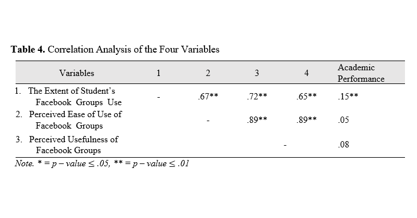Facebook Use as a Support for Academic Learning among College Students in Technological State Universities and Colleges
DOI:
https://doi.org/10.69478/JITC2020v2n2a02Keywords:
Collaborative Learning, Academic Performance, Ease of Use, UsefulnessAbstract
The main intent of this study was to explore how Facebook Groups impact the academic learning of undergraduate students. A mixed-method of research was applied in this study, in which the quantitative as a core component and the qualitative as supplemental. A sample of 590 college students of the selected State Universities and Colleges (SUCs) in Region VIII was the participants in this study. The researcher collected first the quantitative data and then the qualitative data were gathered second to elucidate, elaborate on, or explain the quantitative findings. The theory anchored on Cruz and Carvalho model for web 2.0 integrations that involves the constructivist, communication and collaboration tools that can be applied in the learning process and Technology Acceptance Model (TMA), to identify factors that may motivate these students to adopt Facebook for educational purposes. Results suggest that there is a significant relationship between the extent of students’ use of Facebook Groups with ease of use, the usefulness of Facebook Groups and academic performance. Furthermore, qualitative results revealed that Facebook Groups facilitate academic learning because it increases their productivity, motivation, and dissemination of information through sharing in school-related information.

Downloads
Published
License
Copyright (c) 2020 Janet A. Orioque

This work is licensed under a Creative Commons Attribution-NonCommercial 4.0 International License.



